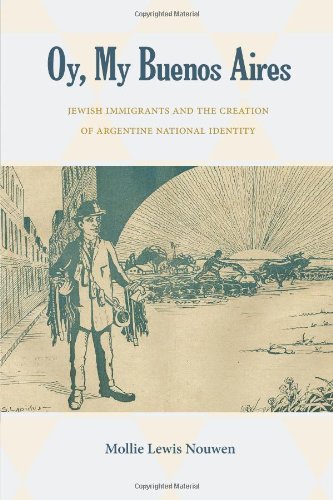

Most ebook files are in PDF format, so you can easily read them using various software such as Foxit Reader or directly on the Google Chrome browser.
Some ebook files are released by publishers in other formats such as .awz, .mobi, .epub, .fb2, etc. You may need to install specific software to read these formats on mobile/PC, such as Calibre.
Please read the tutorial at this link: https://ebookbell.com/faq
We offer FREE conversion to the popular formats you request; however, this may take some time. Therefore, right after payment, please email us, and we will try to provide the service as quickly as possible.
For some exceptional file formats or broken links (if any), please refrain from opening any disputes. Instead, email us first, and we will try to assist within a maximum of 6 hours.
EbookBell Team

4.8
64 reviewsBetween 1905 and 1930, more than one hundred thousand Jews left Central and Eastern Europe to settle permanently in Argentina. This book explores how these Yiddish-speaking Ashkenazi immigrants helped to create a new urban strain of the Argentine national identity. Like other immigrants, Jews embraced Buenos Aires and Argentina while keeping ethnic identities―they spoke and produced new literary works in their native Yiddish and continued Jewish cultural traditions brought from Europe, from foodways to holidays. The author examines a variety of sources including Yiddish poems and songs, police records, and advertisements to focus on the intersection and shifting boundaries of ethnic and national identities.
In addition to the interplay of national and ethnic identities, Nouwen illuminates the importance of gender roles, generation, and class, as well as relationships between Jews and non-Jews. She focuses on the daily lives of ordinary Jews in Buenos Aires. Most Jews were working class, though some did rise to become middleclass professionals. Some belonged to organizations that served the Jewish community, while others were more informally linked to their ethnic group through their family and friends. Jews were involved in leftist politics from anarchism to unionism, and also started Zionist organizations. By exploring the diversity of Jewish experiences in Buenos Aires, Nouwen shows how individuals articulated their multiple identities, as well as how those identities formed and overlapped.